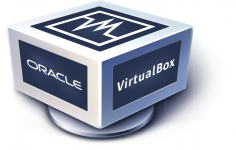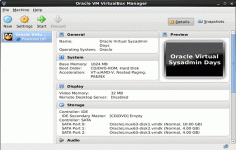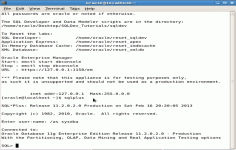 VirtualBox 6.0.0 for PC Windows
VirtualBox 6.0.0 for PC Windows
Oracle - ( Open Source)
VirtualBox is an easy and elegant solution for those who want to control a computer from another computer.
VirtualBox offers virtualize your operating system (OS) guests on a host machine. Called hypervisor, the application supports Windows OS X, Linux, Mac, Solaris, FreeBSD, etc.. as host, Mac OS X missing the call as a guest.
It also includes a remote access via HTTP protocol, convenient for demonstrations on a clean system. The ability to manage multiple states of the system is particularly interesting and its interface is very simple.
Virtualization solutions allow installing an operating system on a virtual machine using the resources of the host PC , thus enjoying very good performance. In the genre, several solutions are known for their ease of use, such as VMware Workstation , Parallels Desktop or Microsoft Virtual PC 2007 SP1.
A virtual machine is a useful way to use two operating systems simultaneously and harmless to the host computer. There is the possibility to install Linux on a virtual machine on Windows and vice versa .
- Title:
- VirtualBox 6.0.0 for PC Windows
- File Size:
- 203.3 MB
- Requirements:
- Windows XP / Vista / Windows 7 / XP 64-bit / Vista 64-bit / Windows 7 64-bit / Windows 8 / Windows 8 64-bit / Windows 10 / Windows 10 64-bit
- Language:
- en-us
- License:
- Open Source
- Date Added:
- 19 Dec 2018
- Publisher:
- Oracle
- Homepage:
- http://www.oracle.com
- MD5 Checksum:
- 9ECF1DD43922DD9915143E7EFC07AD8E
This is a major update. The following major new features were added:
Implemented support for exporting a virtual machine to Oracle Cloud Infrastructure
User interface: greatly improved HiDPI and scaling support, including better detection and per-machine configuration
Major rework of user interface with simpler and more powerful application and virtual machine set-up
User interface: a new file manager enabling user to control the guest file system and copy files between host and guest.
Graphics: major update of 3D graphics support for Windows guests, and VMSVGA 3D graphics device emulation on Linux and Solaris guests
Added support for surround speaker setups (as used by Windows 10 Build 1809)
Added utility vboximg-mount on Apple hosts to access the content of guest disks on the host
Added support for using Hyper-V as the fallback execution core on Windows host, to avoid inability to run VMs at the price of reduced performance
In addition, the following items were fixed and/or added:
Execution core: fixed single-stepping in certain circumstances (bug #17316)
User interface: video and audio recording can now be separately enabled
Audio/Video recording fixes and improvements
Audio: better support for attaching and detaching remote desktop connections
Serial port emulation fixes
Serial ports: allow changing the serial port attachment while a machine is running (bug #6115)
Networking: Added a workaround for older guests which do not enable bus mastering for the virtio PCI device
Networking: fixed wrong RCODE from DNS AAAA query with --natdnshostresolver1 (bug #18171)
iSCSI: In cases where there is no ambiguity, the LUN of an iSCSI target is automatically determined, for targets with non-zero LUNs
Transparently resize disk images when merging if possible
VBoxManage: support for DHCP options
Fixed VNC/RDP (bug 18153)
Guest Control: various new interfaces and features (see SDK documentation)
Linux hosts: support Linux 4.20 (thank you Larry Finger)
Solaris: installer fixes
Shared folders: performance improvements
Guest Additions: improved shared folder auto-mounting
Windows Guest Additions: fix incorrect tablet co-ordinate handling with recent Windows 10 builds
Linux Additions: fix for building vboxvideo on EL 7.6 standard kernel, contributed by Robert Conde (bug #18093)
Linux guests: support Linux 4.20 (thank you Larry Finger)
Linux guests: support VMSVGA in the Linux and X11 Additions
MacOS Guest Additions: initial support
OS/2 Guest Additions: initial shared folder support
BIOS fixes
ACPI: Up to four custom ACPI tables can now be configured for a VM
Related software
0.1/5 from 1120 users


